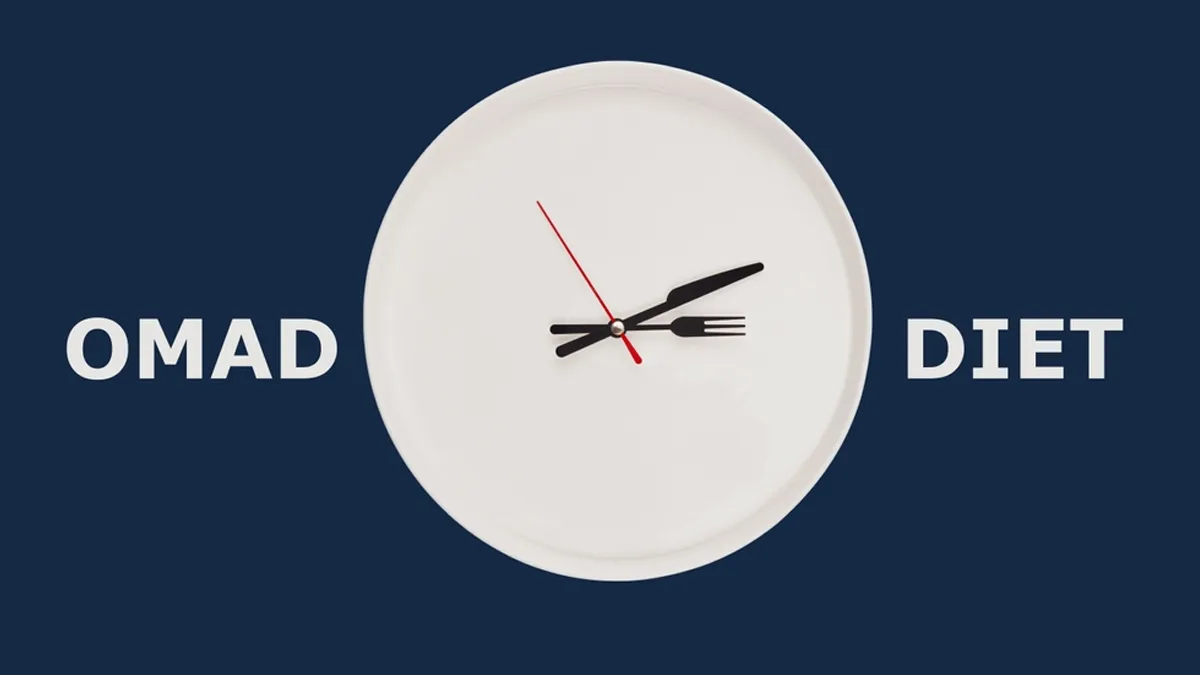
The OMAD diet, or One Meal a Day, has caught the attention of many as a simple approach to weight loss. With just one meal to plan and eat daily, it promises to simplify life while delivering quick results. However, like any diet, it comes with its benefits and challenges. Can this extreme form of intermittent fasting help with weight loss and overall health, or does it come at a cost? We spoke to Eshanka Wahi, a Dubai and Delhi-based Culinary Nutritionist and Holistic Wellness Coach and Founder, Eat Clean With Eshanka, who explained whether this diet is a smart choice or a risky gamble.
Table of Content:-
What Is an OMAD Diet?

“The OMAD diet is a form of intermittent fasting where an individual consumes just one meal daily, fasting for the remaining 23 hours. During the fasting period, only water, black coffee, or tea is allowed. The primary appeal lies in its simplicity and the claim that it can foster quick weight loss," said Wahi.
Here are some key features of OMAD diet, as listed by Wahi:
- Maintain Calories: Eating only once makes it harder to consume excessive calories, naturally creating a calorie deficit.
- Regulates Hormones: Fasting can regulate hormones, such as leptin (satiety hormone) and ghrelin (hunger hormone), which reduces overall hunger.
- Improve insulin Sensitivity: OMAD may enhance insulin sensitivity, leading to reduced fat storage and more efficient fat metabolism.
Also Read: OMAD Diet For Weight Loss: What It Is & Should You Do It
Advantages of OMAD Diet

- Weight Loss: OMAD often leads to a significant calorie deficit, which can result in rapid weight loss for many individuals. According to Frontiers in Physiology, consuming a single evening meal per day reduces body weight and enhances metabolic flexibility during exercise by increasing fat oxidation, without negatively impacting physical performance.
- Health Benefits: The fasting period promotes autophagy (the body’s cellular repair process), reduces inflammation, and lowers the risk of chronic diseases like diabetes and heart disease.
- Mental Clarity: Stable blood sugar levels during fasting periods can improve focus and productivity, giving a boost to mental clarity.
Disadvantages of OMAD Diet
- Risk of Overeating: After fasting for 23 hours, some individuals might overcompensate by consuming excessive calories in one meal, negating the benefits.
- Nutritional Deficiency: A single meal makes it challenging to meet daily nutritional needs, including essential vitamins, minerals, and fibre. A 2022 study found that limiting meals to just one per day was associated with an increased risk of mortality from all causes, including cardiovascular disease.
- Less Energy: Extended fasting can lead to fatigue, low energy levels, and irritability, especially during the initial adaptation phase.
Also Read: Understand The Dos and Don’ts of OMAD or One Meal A Day Diet Before Proceeding
Practical Tips for Considering OMAD
If you’re considering the OMAD diet, a thoughtful approach can minimise risks and maximise benefits. Follow these expert-recommended tips:

- Stay Hydrated: Drinking plenty of water throughout the day helps prevent dehydration and maintain energy levels.
- Listen to your Body: Pay attention to signs like fatigue, irritability, or extreme hunger—these may indicate that OMAD isn’t suitable for you.
- Gradual Adaptation: Shift to OMAD gradually by first reducing meals from three to two, and then to one. This helps your body adapt more comfortably to prolonged fasting.
Bottomline
Wahi concluded, “While OMAD has proven effective for some people, it’s not a universal solution. Its success largely depends on individual factors like metabolism, lifestyle, and overall health. For instance, athletes, individuals with demanding physical jobs, or those with certain medical conditions may find it unsuitable. Additionally, long-term adherence to OMAD can be challenging, potentially leading to burnout or unhealthy eating habits.”
[Disclaimer: This article contains information provided by an expert and is for informational purposes only. Hence, we advise you to consult your professional if you are dealing with any health issues to avoid complications.]
Also watch this video
How we keep this article up to date:
We work with experts and keep a close eye on the latest in health and wellness. Whenever there is a new research or helpful information, we update our articles with accurate and useful advice.
Current Version